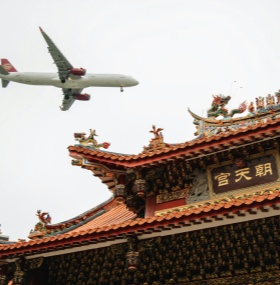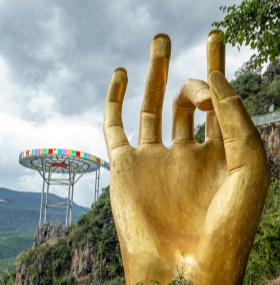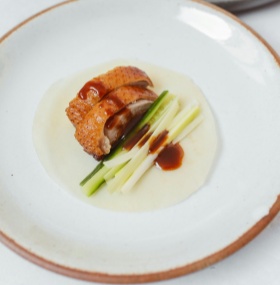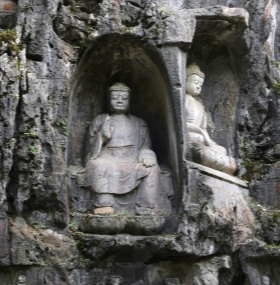Traveling to China can be an exciting experience, but for international travelers, one of the most challenging aspects of the trip is adjusting to the local time zone. China follows a single time zone, China Standard Time (CST), which is GMT +8 hours. This means travelers from countries with a significant time difference, especially from the Americas or Europe, often struggle with jet lag and sleep disruption.
But don’t worry! With a little planning and the right habits, you can quickly adjust to China’s time zone and keep your health in check during your travels. In this article, we’ll walk you through effective strategies to handle the time difference, fight jet lag, and stay healthy while enjoying your trip to China.
1. Prepare Ahead of Time: Adjust Your Sleep Schedule Gradually
The best way to beat jet lag is to prepare before your trip. You can start adjusting your sleep schedule a few days before departure to gradually sync your body’s internal clock to China’s time zone.
How to do it:
Traveling Eastward (e.g., from the U.S. to China): Begin shifting your sleep schedule earlier by one to two hours each day leading up to your trip. Go to bed earlier and wake up earlier to match the local time in China.
Traveling Westward (e.g., from Europe to China): Start delaying your bedtime and wake-up time by one to two hours to better align with China’s time zone.
Adjusting gradually helps your body adapt more easily to the time difference, making your arrival in China much more manageable.
2. Hydrate Well During Your Flight
One of the easiest and most effective ways to minimize the effects of jet lag is to stay hydrated during your flight. Air travel is known to dehydrate the body, and dehydration can exacerbate symptoms like fatigue, headaches, and dizziness.
Hydration Tips:
Drink plenty of water: Keep a bottle of water with you throughout your flight and sip regularly. Avoid caffeine and alcohol, as they can contribute to dehydration.
Stay away from salty snacks: Foods high in salt can make you feel sluggish and contribute to dehydration. Opt for lighter, healthier snacks like fresh fruit, nuts, or crackers.
Use facial mists and moisturizer: The dry air on airplanes can make your skin feel dry and irritated. Keep a hydrating mist or moisturizer in your carry-on to refresh your skin during the flight.
3. Adjust to Local Time Immediately After Arrival
As soon as you arrive in China, start aligning with the local time to help your body adjust quickly. If you land during the day, avoid the temptation to nap, as it will only prolong the jet lag.
Quick Adjustment Tips:
Avoid naps: If you arrive in the morning or afternoon, try to stay awake until a reasonable bedtime. This will help you adapt to China’s time zone faster.
Get natural sunlight: Natural light is the best way to reset your internal clock. Spend time outdoors as much as possible, particularly in the morning, to help your body adjust.
Stay active: Light physical activity, such as walking or stretching, can help reduce feelings of fatigue and improve circulation.
4. Eat Healthy and Light Meals
Eating the right foods plays a big role in maintaining energy and staying healthy while adjusting to a new time zone. In China, you'll find a wide variety of delicious foods, but it’s important to focus on balanced meals to keep your body fueled and your energy levels stable.
Eating Tips:
Opt for light meals: Choose easily digestible foods like steamed vegetables, rice, noodles, and fish. Avoid greasy, heavy meals that can leave you feeling sluggish and tired.
Don’t skip meals: Regular meals help keep your energy levels stable. If you’re still feeling jet-lagged, eating smaller, more frequent meals may be helpful.
Stay hydrated with herbal teas: In addition to water, try drinking local herbal teas, like chrysanthemum tea, which are refreshing and known for their health benefits.
5. Get Enough Sleep and Rest
Sleep is crucial to adjusting to a new time zone, but quality sleep is just as important. Avoid the temptation to over-schedule yourself, as rest is key to staying healthy and feeling energized while exploring China.
Sleep Tips:
Create a comfortable sleep environment: Make sure your room is dark and cool. Use earplugs or an eye mask if necessary to block out noise or light. Many hotels in China offer sleep-friendly amenities like blackout curtains and white noise machines.
Avoid caffeine in the afternoon: Caffeine can interfere with your ability to fall asleep, especially if consumed later in the day. If you need a pick-me-up, opt for a lighter herbal tea instead.
Stick to a sleep routine: Try to go to bed and wake up at the same time every day, even on weekends, to keep your circadian rhythm in sync with local time.
6. Stay Active and Move Regularly
A sedentary lifestyle, especially during long flights or train rides, can make you feel more sluggish and exacerbate the effects of jet lag. Staying active and stretching regularly can help reduce fatigue, improve circulation, and boost your energy levels.
Activity Tips:
Stretch on the flight: Try to stretch or walk around every hour to improve circulation. Simple stretches in your seat or by walking in the aisle will help alleviate stiffness.
Walk around local attractions: Once you arrive in China, take leisurely walks to explore the city or visit parks. Light physical activity helps your body adjust and keeps your energy levels up.
7. Manage Stress and Relax
Traveling across multiple time zones can be stressful, especially when adjusting to a new culture. Managing stress is essential for maintaining your physical and mental well-being during your trip.
Stress Reduction Tips:
Practice deep breathing or meditation: Apps like Calm or Headspace can help you relax and manage stress with guided meditations, breathing exercises, and relaxation techniques.
Take breaks: Don’t feel obligated to see every tourist attraction in one go. Take regular breaks, find quiet places to rest, and give yourself some downtime during your trip.
Slow down the pace: It’s tempting to try to do everything in a short amount of time, but slowing down your itinerary can actually improve your experience in China.
Adjusting to China’s time zone and staying healthy during your trip is all about planning, hydration, healthy eating, and relaxation. By following these practical tips—such as gradually adjusting your sleep schedule, staying active, and managing your stress levels—you can minimize jet lag and make the most of your trip to China. From exploring the country’s historical sites to savoring local delicacies, staying healthy and well-rested will ensure that you can fully enjoy all that China has to offer. Safe travels!
Related Posts
Create Your Customized Trip
Take about 2 minutes to fill the form to tell us how you like to travel, and get a reply within 1 working day.








